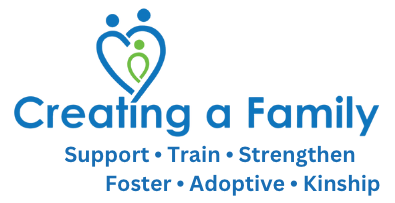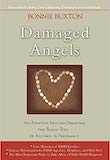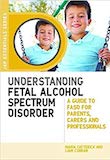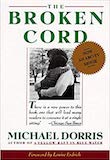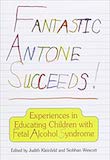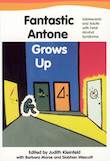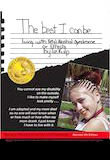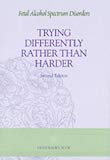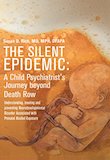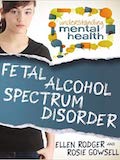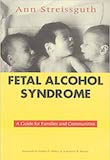Prenatal Substance Exposure
Damaged Angels: An Adoptive Mother’s Struggle to Understand the Tragic Toll of Alcohol in Pregnancy by Bonnie Buxton – Part heartfelt memoir, part practical guide, Damaged Angels recounts Bonnie Buxton’s struggles to raise her adopted daughter Colette, whom she didn’t realize was afflicted with fetal alcohol disorder. Her book also offers guidance to parents who have children with FASD. This was a sad book but provides valuable information to parents trying to navigate the world of FASD. At times it was hard to slog through, but the information provided made it worth the effort.
Understanding Fetal Alcohol Spectrum Disorder: A Guide to FASD for Parents, Carers and Professionals by Maria Catterick and Liam Curran – A useful introduction to Fetal Alcohol Spectrum Disorder (FASD). Written by two FASD experts, it describes how alcohol can harm the fetus and disrupt development, and explains how FASD affects individuals at different stages of their lives. With the aid of simple, illustrative diagrams, photographs and charts, it shows how you can identify FASD and provides accessible and informative advice for parents or carers on how children, young people and adults with FASD can be best supported.
The Broken Cord by Michael Dorris – The poignant account of a single dad grappling with his adopted son’s FASD. Dorris’s son Adam has significant developmental delays when he was adopted at three-years old, but Dorris believed that nurture and love would prevail, but it didn’t. Dorris chronicles the frustration of day-to-day living with Adam, admits his rage at his own inability to make his son’s life fuller and eloquently describes moments of pride, hope and–always–love. The book was written in the late 90s, before much was known on how to help kids with FASD, and is not necessarily representative of the prognosis of children with FASD in the day and age.
Fantastic Antone Succeeds: Experiences in Educating Children with Fetal Alcohol Syndrome by Judith Kleinfeld – Based on research done in Alaska, which has rates of FAS 6 to 18 times higher than the national average, Fantastic Antone Succeeds describes concrete, specific ways of educating children with fetal alcohol syndrome/fetal alcohol effects (FAS/FAE). It communicates an optimistic message that is both true and appealing: with the right education, delivered by a nurturing individual in the home or in the school, many alcohol-affected children thrive. The book consists of chapters written by psychologists, teachers, and birth and adoptive parents of children with FASD. The book also includes lists of important resources, organizations to contact, and descriptions of effective classroom practices for teachers. Without minimizing the seriousness of FAS/FAE and the first priority prevention, this book provides practical tools and strategies that can help alcohol-affected individuals and their families lead happier, more productive lives.
Fantastic Antone Grows Up: Adolescents and Adults with Fetal Alcohol Syndrome by Judith Kleinfeld – A field guide to life with an adolescent or young adult with fetal alcohol syndrome/effects. Adolescence is a trying time for young people and their families under the best of circumstances. For the challenged and challenging young people with FAS/E, the circumstances as they begin maturing are never the best. In this sequel to Fantastic Antone Succeeds, young people with FAS/E and their caregivers report on their experiences coping with the problems of adolescence and young adulthood and candidly convey which techniques worked and which did not during the difficult passages of the teenage years and beyond. Section one defines what success means for for adolescents and adults with FAS/E. Section two discusses strategies that work in areas such as counseling, education, sexuality, trouble with the law, and independent living, and section three covers what families need from the community, including innovative programs that help individuals with FAS/E, and how to get a diagnosis at adolescence.
The Best I Can Be: Living with Fetal Alcohol Syndrome or Effects by Liz Kulp and Jodee Kulp – Liz Kulp’s birth mother drank while she was pregnant and Liz was born with Fetal Alcohol Syndrome. In The Best I Can Be, Liz and her adopted mother Jodee tell her story. Liz’s story is told in her own words on index cards, while the rest of the book is written by her mother, telling their family’s journey after adopting Liz and the struggle to find a proper diagnosis. The book contains lists of resources for families going through a similar journey. An invaluable resource for anyone who has a child with FAS in their life.
Trying Differently Rather Than Harder: Fetal Alcohol Spectrum Disorders by Diane Malbin, MSW – This book provides a readable, narrative discussion of the neurobehavioral approach for working effectively with children and adolescents with FASD. It focuses on understanding behaviors differently – primary and secondary learning and behavioral characteristics. One section explores the most common behavioral symptoms by providing case examples, interventions, and improved outcomes. The neurobehavioral approach is illustrated by stories of how alternative interventions lead to less frustration. Trying Differently Rather than Harder is by far the gold standard — a tremendous resource for every foster/adoptive parent.
The Silent Epidemic: A Child Psychiatrist’s Journey Beyond Death Row by Susan D. Rich, MD, MPH – Prenatal alcohol exposure is the leading preventable cause of birth defects, neurodevelopmental disorders, and intellectual disability. In The Silent Epidemic, Dr. Susan Rich provides insight into the prevalence of neurodevelopmental disorder associated with prenatal alcohol exposure (ND-PAE) among juveniles accused of violent crimes. She also provides hope: with appropriate diagnosis and treatment, affected individuals can avoid a lifetime of lost potential from substance use disorders, incarceration, unemployment, and homelessness.
Fetal Alcohol Spectrum Disorder by Ellen Rodger and Rosie Gowell (ages 10-14) – One of the most difficult parts of having a child with FASD is explaining to your child why they are different. Fetal Alcohol Spectrum Disorder, part of the Understanding Mental Health series, provides teens and tweens with a useful overview of the mental, behavioral, and physical impairments of FASD, as well as new research, treatments and methods for managing behavioral issues. It also includes a chapter aimed at the siblings of children with FASD. A fantastic resource for any family affected by FASD.
Fetal Alcohol Syndrome: A Guide for Families and Communities by Dr. Ann Streissguth – This is a gem of a book and a great place to start researching FAS/FASD. Dr. Streissguth is a leading researcher in the field of FAS. As those of you who have read my book or website know, I love to read and report on the scientific research in adoption. The problem with this research is that it is often too theoretical for practical application by those of us in the trenches–AKA the parents. This book solves that problem nicely. It is a practical, easy to read guide for parents and professionals based on the author’s many years of research. Get this book if you are concerned about adopting a child with fetal alcohol spectrum disorder.
Essential FASD Supports by Nate Sheets — Author Nate Sheets has been a behavior consultant specializing in Fetal Alcohol Spectrum Disorders for years. Based on the work of Diane Malbin and Mona Delahooke, his “Cognitive Supports” framework focuses on the brain. This book is full of practical, everyday strategies and tips for parents and caregivers. Topics include struggles with executive functioning, opposition, emotional dysregulation, lying, stealing, and other challenging behaviors. A must-read for anyone who wants to support a loved one who has been prenatally exposed to alcohol or drugs.
They Call Me CAT by Jan Crossen — Follow this 3-part story of Joshua, a transracial adoptee who was prenatally exposed to alcohol. Joshua and his family lived with the lifelong impacts of an undiagnosed Fetal Alcohol Spectrum Disorder, including emotional, cognitive, and social issues. Like many adopted teens, Joshua also struggles to understand his identity and his past. His family builds a circle of support around him. This story of survival, relationships, love, and hope is suitable for adult readers and young adults.
*As an Amazon Associate we earn from qualifying purchases, but we only recommend books that we value. Thanks for your support!
Image credit: Brooke Hoyer
